Search
Remove Ads
Advertisement
Summary 
Loading AI-generated summary based on World History Encyclopedia articles ...
Search Results
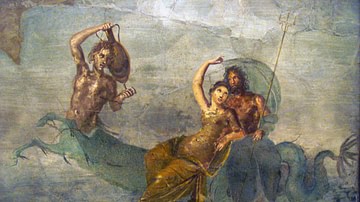
Definition
Amphitrite
In Greek mythology, Amphitrite is a goddess and the feminine personification of the sea. She is the wife of the Greek sea god, Poseidon, and lives with him in a golden palace beneath the sea. As the daughter of Nereus and Doris, she is one...

Definition
Hebe
Hebe (meaning "youth" or "bloom of youth") is the goddess and personification of eternal youth in Greek mythology. She is the daughter of Zeus and Hera and the wife of the Greek hero Hercules. Hebe serves as the cupbearer for the gods and...

Definition
Circe
Circe (also spelt Kirké) is a powerful sorceress and goddess in Greek mythology with an exceptional talent for mixing drugs. She was the daughter of the sun god Helios and the Oceanid Perseis. Circe's home was found on the wooded island of...

Definition
Fates
The Fates (also known as the Moirai in Greek mythology) are three sister goddesses responsible for assigning destinies to mortals at their birth, a human's lifespan, and the timing of their death. The golden thread they spin represents each...

Definition
Selene
Selene (also known as Mene) is the personification and goddess of the moon in Greek mythology. Every night, she travels across the sky in her chariot, pulling the moon behind her. Selene is the daughter of the Titans Hyperion and Theia. She...
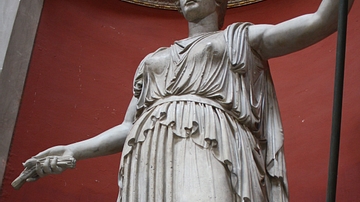
Definition
Ceres
Ceres is the goddess of agriculture and the harvest in Roman mythology. Her favor would bring humankind plentiful harvests and fruitful crops, but her wrath brought blight, drought, and famine. Usually depicted as a matron, her symbols included...
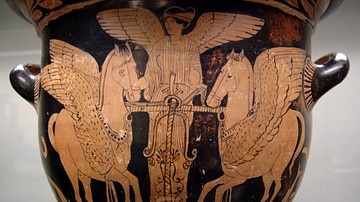
Definition
Eos
Eos is the personification and goddess of the dawn in Greek mythology. She is the daughter of the Titans Hyperion and Theia and the sister of Helios (Sun) and Selene (Moon). Dressed in a saffron-coloured mantle, Eos rides on her chariot in...
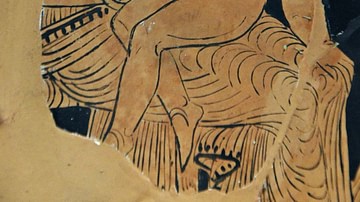
Definition
Pasiphaë
Pasiphaë ("all-shining") is the wife of King Minos of Crete and the mother of the fearsome Minotaur (half-bull, half-man creature) in Greek mythology. She is the daughter of the sun god Helios and Perse, an Oceanid. Like her sister Circe...
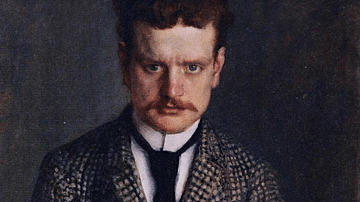
Definition
Jean Sibelius
Jean Sibelius (1865-1957) was a Finnish composer famous for his symphonies, the symphonic poem Finlandia, and the Karelia Suite. Although Sibelius inspired a music revival in his native country, became a figurehead for the Finnish nationalist...